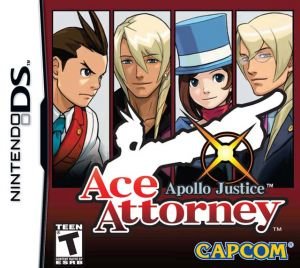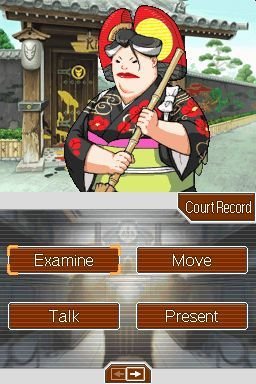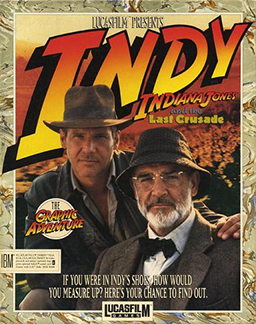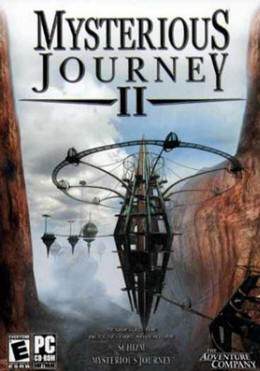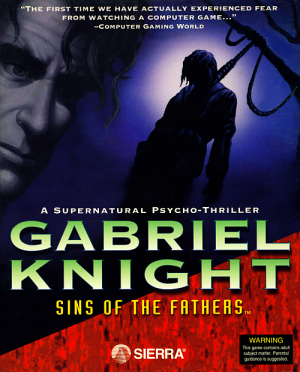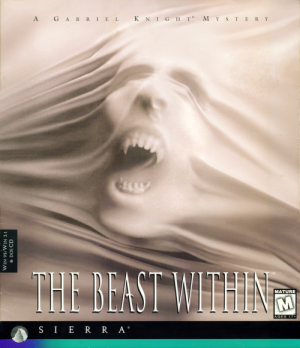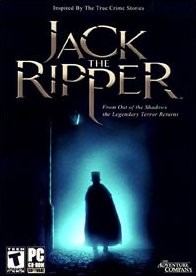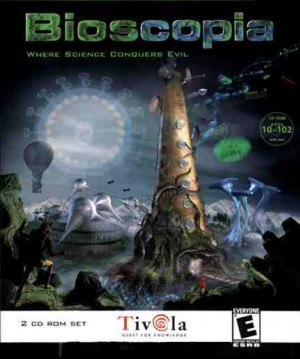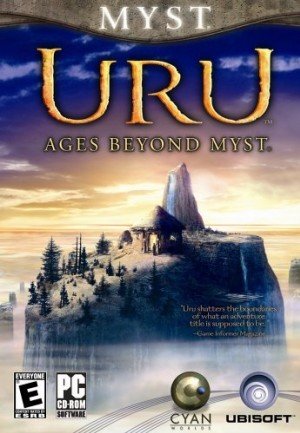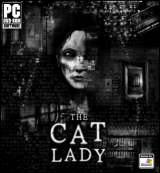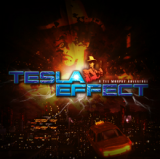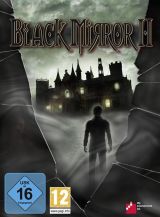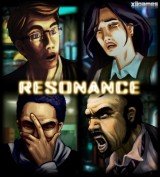Review for Apollo Justice: Ace Attorney
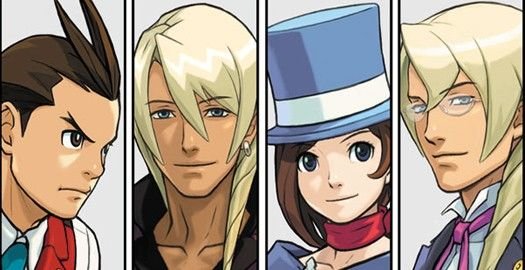
When Capcom decided to replace the popular, spiky-haired Phoenix Wright as the lead protagonist of the Ace Attorney series, they must have known they were taking a gamble. With the original series neatly wrapped up in Trials and Tribulations, it was inevitably going to be difficult to start again with a new main character and follow such a legacy. If the first results are any indication, such concerns appear to be justified, as Apollo Justice is a decent game that's still worth playing, but it fails to live up to its impressive heritage and is the weakest title out of the four.
This time around, the star of the show is the titular Apollo Justice, a newly qualified but equally pointy-haired attorney, whose debut case sees him defending a very familiar face accused of murder with rather condemning evidence against him. Like previous games in the series, this first case acts as a tutorial, outlining the basics of the game such as how to question witnesses/suspects on the stand, look at the court record and present evidence. Little has changed in this regard from the earlier games, but items in the court record can now be zoomed in and rotated, which is useful for closer examination that may lead to extra clues important to the case.
Some of the visuals have been tweaked for the better, although not in a massively dramatic way. The characters' faces have more detail in their expression and the recurring locations have been given a little more polish. One new feature is the use of 3D crime scene re-enactments, which are animated diagrams that provide a more visual way of picturing what happened. The other big difference is the inclusion of several animated cutscenes sprinkled throughout. One of these is a music concert video that's presented in high quality anime that looks like it was taken from a cartoon-style movie rather than something from a Nintendo DS title. Yet while this is undeniably impressive and showcases the console's technical abilities (and clearly talent on the animators' behalf), the video gets replayed so often during a particular court case that you'll be sick of the sight of it before long.
Shortly after his first case, Apollo teams up with Trucy Wright, a young female magician based at the former Wright and Co. law offices-turned-talent agency. As a sidekick, the eccentric Trucy is more than capable of living up to the legacy that the Fey girls left behind, standing out as a unique character in her own right rather than a carbon copy of her predecessors. In contrast, Apollo is more difficult to warm to and fails to make the impact that Phoenix Wright managed so effortlessly in previous games. Some of the other main characters that make an appearance don't live up to expectations either: Ema, the forensic scientist from the first Ace Attorney game who is now a detective, doesn't have the strong personality that Detective Gumshoe possessed to make her as enjoyable, and rival attorney Klavier Gavin (a German rock and roll star/prosecutor with an eye for the ladies) is a great opponent, but doesn't compare to the presence of Godot or the unflappable Edgeworth.
Despite giving way to a new attorney as the star of the game, Phoenix Wright frequently appears in Apollo Justice as a supporting character, with many of the cases revolving around him and his past. Unfortunately, his inclusion proves more disappointing than rewarding and raises many questions. Where are Pearl and Maya? Why is there little acknowledgment given to any of the other characters or cases from previous games? Phoenix's recurring role keeps you expecting more characters from the previous titles to make an appearance, and it is all the more disappointing when they fail to materialize. His personality has also taken on something of a odd turn. The older, mellower Phoenix Wright is so aloof and inscrutable that in many ways it's like he is an entirely new character. While there are some reasons why he behaves in such a manner that are explained throughout the game (and also why he no longer practices law), anyone who has avidly followed his character's development to this point in time will feel that something has been lost along the wayside.
Aside from the sweeping character changes, Apollo Justice is largely another return to the tried and true formulas of earlier games. The gameplay once again sees you travelling to crime scenes looking for clues and interviewing witnesses in between outrageous court sessions that bear little resemblance to real-world legal processes. For the most part, the challenge is simply to follow the correct trail of evidence and blow holes in false ones, but that's easier said than done when the means to do so is so linear. Fortunately, the game's internal "logic" is fairly evident in this game, so the frustration is kept to a minimum. Still, it's not without annoying consequences for mistakes, as the status bar that appears in court, depleted as a penalty when presenting the wrong piece of evidence, is back once again and just as contrived as ever.
One of the biggest changes in the game, though only used sporadically, is the special ability of its protagonist. While previous games used the Magatama to detect lies and break through "Psyche-Locks" during investigations, Apollo's trick is a mystical bracelet that allows him to spot people's nearly imperceptible habits during their testimony in the court room. At certain points during a case, Apollo's bracelet will react (its symbol at the bottom of the screen will automatically be highlighted, taking the guesswork out of when to use it) and activating it will zoom into the suspect on the stand through a somewhat obscured image of an eyeball. It is necessary to move this image around while the testimony replays in slow motion, looking for any tiny changes in animation that reveals tension in their statement. Once spotted, you hit the "perceive" button and Apollo will nab the witness in the act. This use of the bracelet to spot hidden mannerisms is an inventive way of making court cases more involving, but there is a lot of hand holding through the whole idea. While it is a new addition that naturally takes some getting used to, the game spends at least two full cases explaining how and when to use this feature, and then never really providing enough scope for experimentation.
Unfortunately, the bracelet also isn't available during the investigation sections, which means that clue gathering can feel a little lacking in the "puzzle" department. This is somewhat alleviated by more forensic tools that make use of the touch screen, but these activities are never utilized to anything close to their potential. Yes, it is possible to use fingerprint powder by tapping on the touch screen and blowing on the microphone, use an X-ray machine by turning dials, detect poison by tapping on areas of the screen and casting footprints in much the same way, but none of this is particularly immersive. The instances in which you can perform these tasks is also limited: searching for prints or blood stains is only allowed under certain conditions, so not only does this side of puzzling feel underused, it also removes part of the challenge as you are confined to using these tools at a set place at a specific time.
Another slight disappointment is that there are only four cases instead of five, making Apollo Justice the shortest game in the series, although at around 15-20 hours in length, there is still plenty of entertainment here for your money. In a new twist at the end of the last case, you get to choose a "guilty" or "not guilty" verdict as a juror, which gives either a good or bad ending. However, only the correct choice will prompt the end credits and further plot twists which provide a basis for a future game in the series, so the alternate choice ends up being little more than a curiosity.
Despite the mounting criticism, Apollo Justice: Ace Attorney is a decent enough game in its own right, and fans of the series can expect much of what they enjoyed in previous offerings. On the other hand, given that this was the first game specifically designed in its entirety for the Nintendo DS and yet offers very little to take adventage of its DS capabilities, the title ends up feeling somewhat disappointing. On top of that, the new cast of characters, with the exception of Trucy, isn't as interesting as in previous games, and the continued presence of Phoenix Wright leaves Apollo standing in his shadow and never fully being given the chance to shine. There's clearly plenty of room for his character to grow should the series continue, but his debut is nevertheless a shallow one. Those who have never played a game in the series to this point will find that this is still a well written adventure filled with quirky humour, offbeat scenarios and ever-twisting plots. The same is true for series veterans, of course, but having seen what previous iterations were capable of at their best, the latest Ace Attorney ends up feeling mostly like more of the same but not as good.
WHERE CAN I DOWNLOAD Apollo Justice: Ace Attorney
Apollo Justice: Ace Attorney is available at:
We get a small commission from any game you buy through these links (except Steam).Our Verdict:
Apollo Justice is still a game worth seeking out, but it can't help but feel disappointing given the series pedigree.


